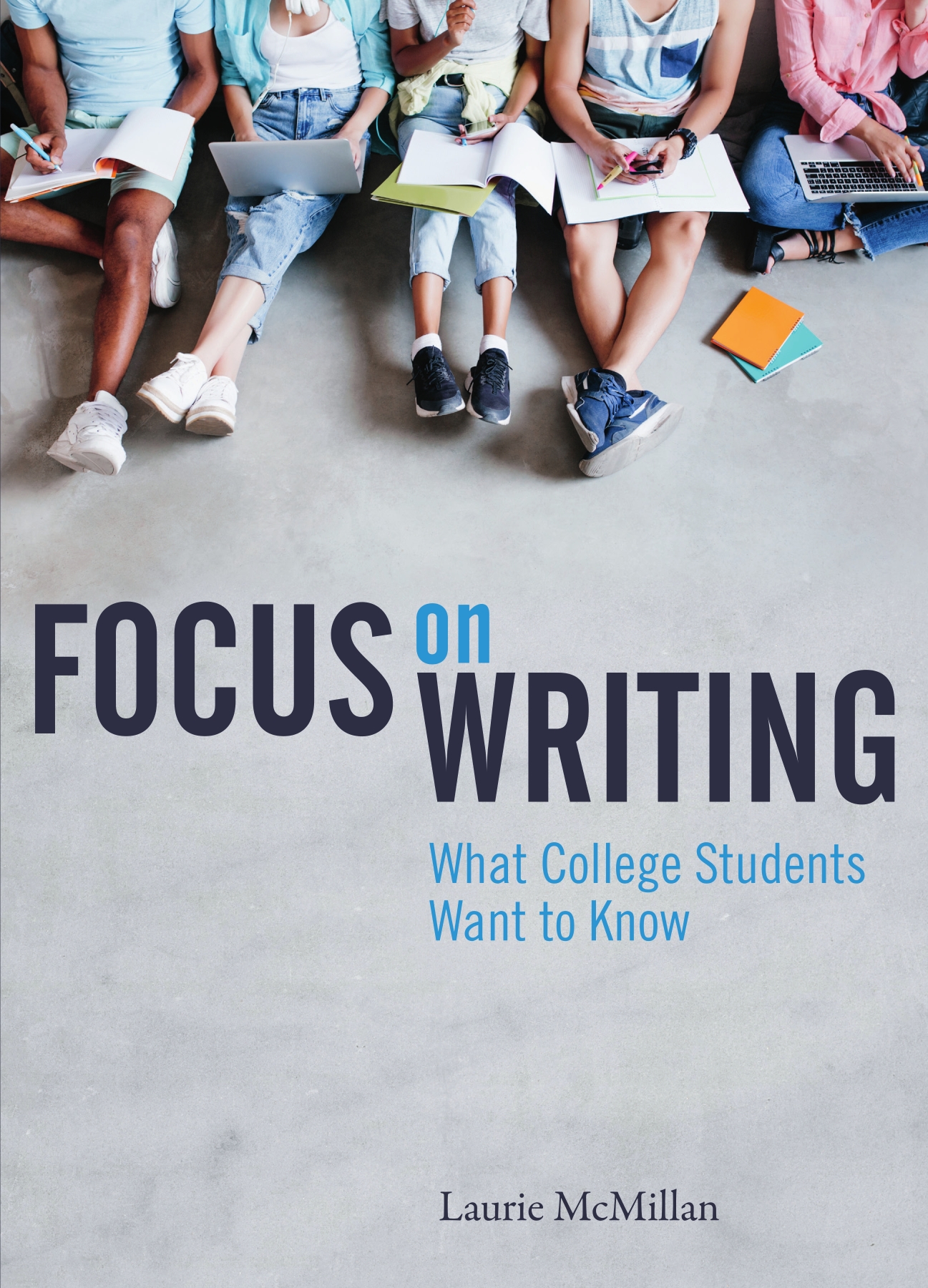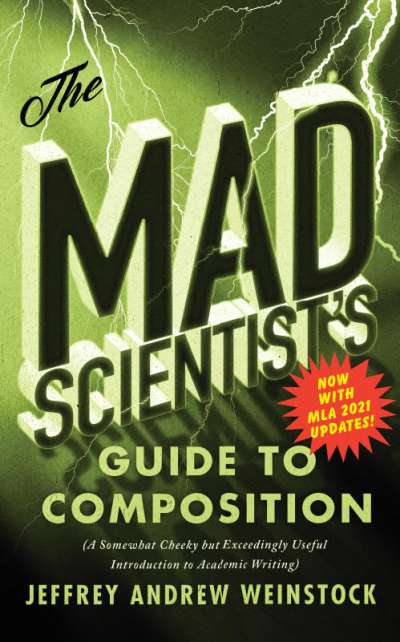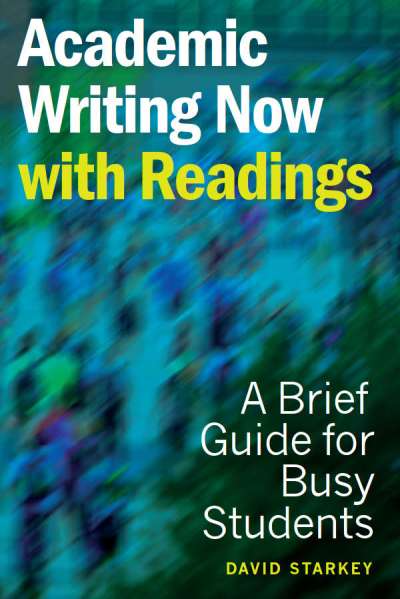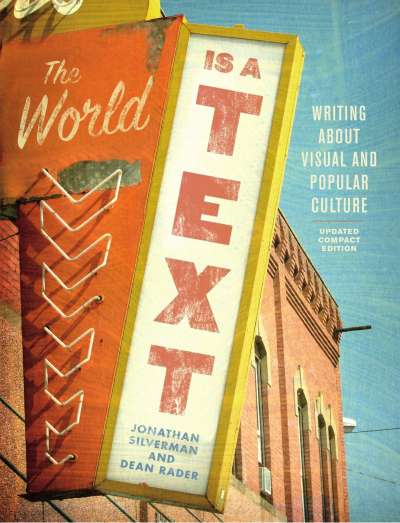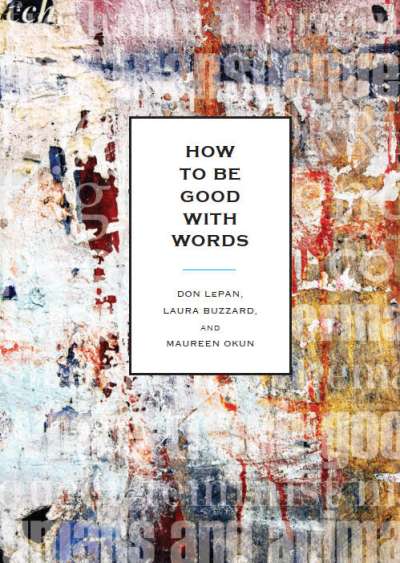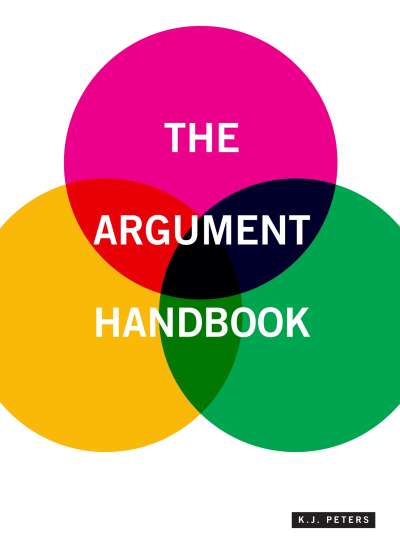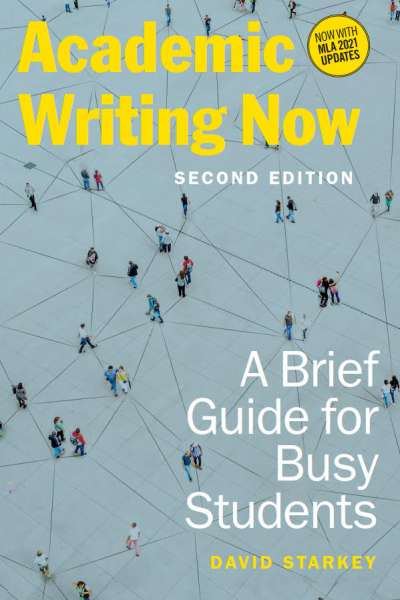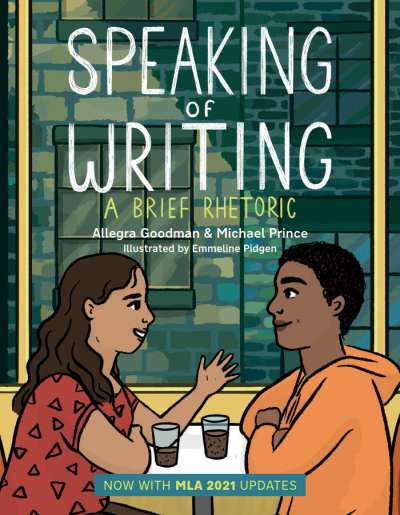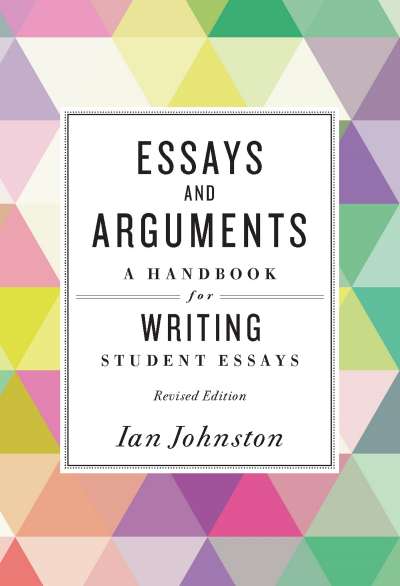This first-year composition rhetoric-reader uses a Writing about Writing (WAW) approach and a conversational style to help students engage in threshold concepts and transfer what they know about writing to new situations. Each chapter asks a key question such as “Why Write?” or “What Is the Rhetorical Situation and Why Should I Care about It?” Preliminary answers to the chapter question are provided in accessible prose, and these initial ideas are supplemented with a selection of three or four readings and a list of recommended online texts.
Prompts for informal and formal writing projects keep the focus on writing and help students apply writing studies scholarship to their own lives in meaningful ways.
A companion website includes recommended WAW resources, assignment supports, and links to additional readings: sites.broadviewpress.com/focusonwriting
Comments
“With Focus on Writing, Laurie McMillan personalizes the anthology-textbook genre: each text includes a motivating note on ‘why I included it,’ and each chapter opens with an essay grounding rhetorical principles in both disciplinary conversations and McMillan’s own lived experience as a writer, across genres and contexts. Prominent sidebars throughout the book remind us to CONNECT, with prompts to help link across chapters and courses and non-academic experiences, with a goal of improved transfer. Though the named audience is college students, teachers will benefit from McMillan’s example: reading the book is like sharing an office with an especially thoughtful and knowledgeable colleague, learning from them how to work with students.” — Benjamin Miller, University of Pittsburgh
“Laurie McMillan’s Focus on Writing provides a fresh approach to ‘writing about writing.’ Unlike many texts, it speaks directly to students in a voice that includes them in conversations about why and how we write. The personal, witty style makes key concepts like inquiry, transfer, kairos, and genre both accessible and useful. McMillan’s conversation-based model of research and her attention to habits of mind will help students understand the kinds of things that good writers think about and do. And the structure of the book enacts the subtitle’s concept of ‘What College Students Want to Know,’ providing both a brief introduction to key activities that good writers perform and a selection of accessible readings from the field to which students can respond. The writing prompts, likewise, are designed to spur metacognitive thinking about writing processes and so will help students to transfer the strategies they reflect upon to future writing.” — Dominic DelliCarpini, Naylor Endowed Professor of Writing Studies, York College of Pennsylvania
ACKNOWLEDGMENTS
INTRODUCTION
What Should I Know about This Book?
- WELCOME
- READING FOCUS ON WRITING
- What to expect
- Reading actively, reading rhetorically
- Reading academic articles
- Why Writing about Writing?
- THE WIDER CONVERSATION
- WPA Outcomes Statement for First-Year Composition (3.0)
- Framework for Success in Postsecondary Writing—Executive Summary
- GUIDE FOR WRITING INSTRUCTORS
- Rationales informing textual features
- Aligning chapters of Focus on Writing with three pedagogical frameworks
- Models: Approaches to writing and research
CHAPTER ONE
Why Write?
- EXPLORING THE QUESTION
- Relationship with writing: It’s complicated
- Why write in a college course?
- EXTENDING THE CONVERSATION
- “The Pursuit of Literacy” by Deborah Brandt (2001)
- “Domestic Sphere vs. Public Sphere” by Aleeza Laskowski (2016)
- from The Transition from Student to Professional: A Pedagogy of Professionalism for First-Year Composition by Marcea K. Seible (2008)
- “Literature, Literacy, and (New) Media” by Andrea Lunsford (2012)
- Recommended online sources
- JOINING THE CONVERSATION
CHAPTER TWO
What Is the “Rhetorical Situation” and Why Should I Care about It?
- EXPLORING THE QUESTION
- The rhetorical triangle and beyond
- The occasion: An overly brief explanation
- Discourse communities
- Genres
- From “rules” to “guidelines”
- EXTENDING THE CONVERSATION
- “Activity Theory: Situated Learning and Student Motivation” by Marcea K. Seible (2008)
- “Materiality and Genre in the Study of Discourse Communities” by Amy J. Devitt, Anis Bawarshi, and Mary Jo Reiff (2003)
- “Powerless Persuasion: Ineffective Argumentation Plagues the Clean Eating Community” by Jessie Cannizzo (2016)
- Recommended online sources
- JOINING THE CONVERSATION
CHAPTER THREE
What Do Effective Writers Do?
- EXPLORING THE QUESTION
- Linear to recursive models
- Material situations
- Strategies for starting
- Strategies for improving writing
- Strategies for polishing writing
- To procrastinate or not?
- Writing as social: Collaboration and feedback
- Pro tips on process
- Pro tips on product
- EXTENDING THE CONVERSATION
- from Bird by Bird: Some Instructions on Writing and Life by Anne Lamott (1994)
- “Teaching the Other Self: The Writer’s First Reader” by Donald M. Murray (1982)
- “Understanding Composing” by Sondra Perl (1980)
- “Writing Research and the Writer” by John R. Hayes and Linda S. Flower (1986)
- Recommended online sources
- JOINING THE CONVERSATION
CHAPTER FOUR
What Do Effective Researchers Do?
- EXPLORING THE QUESTION
- Useful principles from everyday research
- Academic research: Overview
- Secondary research: Finding and evaluating sources
- Secondary research: Reading, taking notes, organizing, oh my!
- Secondary research: Integrating sources into your writing ethically
- Primary research methods
- Organizing common research genres
- EXTENDING THE CONVERSATION
- Introduction to Rewriting: How to Do Things with Texts by Joseph Harris (2006)
- “What Can a Novice Contribute? Undergraduate Researchers in First-Year Composition” by Douglas Downs and Elizabeth Wardle (2010)
- “Research Is Elementary: How Blue’s Clues Can Help Teach Communication Research Methods” by David Gesler (2007)
- Recommended online sources
- JOINING THE CONVERSATION
CHAPTER FIVE
How Do I Translate My Academic Writing into Public Genres?
- EXPLORING THE QUESTION
- College writing and “the real world”
- Digital possibilities
- Possibilities beyond the screen
- EXTENDING THE CONVERSATION
- Introduction to Situated Language and Learning: A Critique of Traditional Schooling by James Paul Gee (2004)
- “The Low Bridge to High Benefits: Entry-Level Multimedia, Literacies, and Motivation” by Daniel Anderson (2008)
- “Going Public: Exploring the Possibilities for Publishing Student Interest-Driven Writing beyond the Classroom” by Stephanie Anne Schmier, Elisabeth Johnson, and Sarah Lohnes Wataluk (2018)
- Recommended online sources
- JOINING THE CONVERSATION
- CONCLUSION
- Now What?
- SHARING YOUR EXPERTISE
- ONGOING CHALLENGE
Permissions Acknowledgments
Index
Laurie McMillan is Associate Professor of English at Pace University.
To read Chapter 1 of Focus on Writing click here (Opens as a PDF.)
The Focus on Writing companion website includes recommended WAW resources, assignment supports, and links to additional readings for students.
An instructor site includes linked readings, Writing About Writing resources, assignment rubrics, and sample syllabi.

